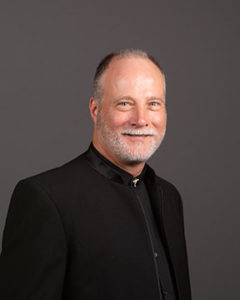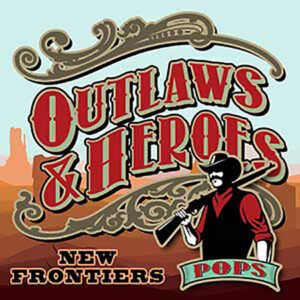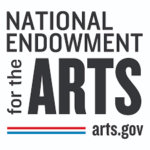Program
Richard Markowitz / arr. Phillippe – The Wild, Wild West
Gwyneth Walker – Open the Door
Aaron Copland – Billy the Kid Ballet-Suite
Felix Mendelssohn – Overture: The Hebrides
Trevor Jones / orch. Alexander – The Last of the Mohicans Suite
Arr. Calvin Custer – The American Frontier
Richard Markowitz, Arr. Phillipe – Theme from The Wild, Wild West
This popular TV series from 1965-69 was a blend of Gilded Age America and Jules Verne science fiction. Its creator, Michael Garrison, saw it as “James Bond on horseback,” with detectives James West and Artemus Gordon working against villains who threatened President Ulysses Grant and his nation. Californian Richard Markowitz (1926-94), who studied composition in Europe after World War II, created the theme song. He was the author of many film scores, TV series themes and made-for-TV movies throughout the latter half of the century. Credit him with the song “The Rebel” sung by Johnny Cash.
Gwyneth Walker – Open the Door
Native New Englander Gwyneth Walker (1947- ) showed a gift for improvising music at an early age prior to any training. She took her degrees in music from Brown University and Hartt School of Music in Hartford and taught until stepping away from the Oberlin College Conservatory in 1982 to focus on composition. Her works range from orchestral to chamber and instrumental pieces to solo and choral vocal works. She arranges folk tunes, creates songs from poems, and composes musical settings for readings. Walker has had a lifelong passion for working with musicians and musical groups across America.
In 1991, Walker composed “Open the Door” for the tenth anniversary of The Women’s Philharmonic. It conveys the process from initial hesitancy to full-blown engagement, a kind of apotheosis of the power of music to bring diverse groups and sounds together.
Aaron Copland – Ballet Suite from Billy the Kid
No twentieth-century American composer is more quintessentially “American” than Aaron Copland (1900-1990). Also the son of Russian-Jewish immigrants, Copland created music that spoke appealing to both classical and popular audiences. After receiving fundamental compositional training from Rubin Goldmark, he moved to Paris, where he was one of the earlier students of the famous Nadia Boulanger. Those years in the 1920s in Paris and Europe not only shaped him musically but culturally as well.
Copland’s earlier compositions reflected the experimental idioms he had encountered particularly in his European studies. But in the 1930s, influenced by a wide variety of social and aesthetic movements that stressed more accessible and more “American” style and subject matter, he moved into a creative phase that produced film and ballet scores such as “Our Town,” “Billy the Kid,” “Appalachian Spring,” and “The Red Pony.” In the minds of many, his open sounds evoked rural America, its landscapes, and particularly the great West.
“Billy the Kid” is one of Copland’s earliest ballet scores (1938), offering a series of musical tableaus that express scenes from William Bonney’s life—this mother’s death, his first killing, escape, capture, escape, and finally death at the hands of Pat Garrett. Several recognizable Western melodies are worked into the story by Copland in a score that captures many elements of the openness, the danger, and the beauty of the mythical West.
Felix Mendelssohn – Overture: The Hebrides
Along with Franz Schubert, Felix Mendelssohn (1809- 1847) embodied the German tradition of beautiful melody in the expanded tradition established by Beethoven in the first part of the 19th century. Neither lived to be 40, but both left a wealth of irreplaceable music. Mendelssohn’s precocity at 12 was such that Goethe compared him to Mozart when he met him. At 20, Mendelssohn achieved acclaim for his revival of the music of Bach in his presentation of the “St. Matthew’s Passion.”
The composer of symphonies, concertos, songs, oratorios, and chamber music, Mendelssohn married a Romantic spirit with profound respect for traditional forms. That blend is found in his “Hebrides Overture,” which was composed as a standalone piece, not as an introduction to a larger work. It is a kind of fantasy or rhapsody inspired by Mendelssohn’s first visit to Scotland. There he visited the Hebrides Islands off the western coast. He was inspired by a visit to the island of Staffa, known for the haunting sounds in its large basaltic cave, which came to be called “Fingal’s Cave,” associating it with a mythic Gaelic bard. Mendelssohn uses strings and winds to capture the spirit of this lonely island on the western edge of Europe.
Arr. Calvin Custer – The American Frontier
The musical career of Calvin Custer (1939-1998) is primarily associated with the Syracuse Symphony Orchestra. He performed with the ensemble on several instruments and was a prolific staff arranger as well. Custer’s diverse musical career included playing with rock groups and initiating a chamber music program from the Syracuse Symphony that remains active.
From 007 to “The Phantom of the Opera,” “Star Trek” to “The Lion King,” Henry Mancini to John Williams, Calvin Custer has created and conducted arrangements of virtually every familiar work of popular music of our time. In “The American Frontier” he provides a medley of historic tunes including “Chester,” “Shenandoah,” “Oh Susannah,” and culminating in “America the Beautiful.” The medley captures the spirit of the great nation that is so emblematic of the West—the United States of America.
 From the conductor:
From the conductor:
This program explores the American drive to seek new frontiers and accomplishments. Composing the film score to “How the West Was Won” earned Alfred Newman, one of America’s most prolific and successful composers, one of his 45 Academy Award nominations. Aaron Copland composed his ballet music to the story of Billy the Kid. The music brings to life the dramatic scenery and action of frontier living. The Western Isles of Scotland brought inspiration to Felix Mendelssohn in his Overture inspired by the Hebrides. Another frontier that is being explored brings us access to outstanding music written by woman composers, such as America’s Gwyneth Walker. Her orchestral work “Open the Door” is an intriguing and energetic piece about access for underrepresented composers to be heard. Growing up in the 60’s, the television Sci-Fi Western series called “The Wild Wild West” was a favorite show. Very clever episodes showed how the latest technology being used back in the frontier days could help foil the bad guys.
Start your new year with your symphony heroes! See you there!
Gene Dowdy, conductor & artistic director





